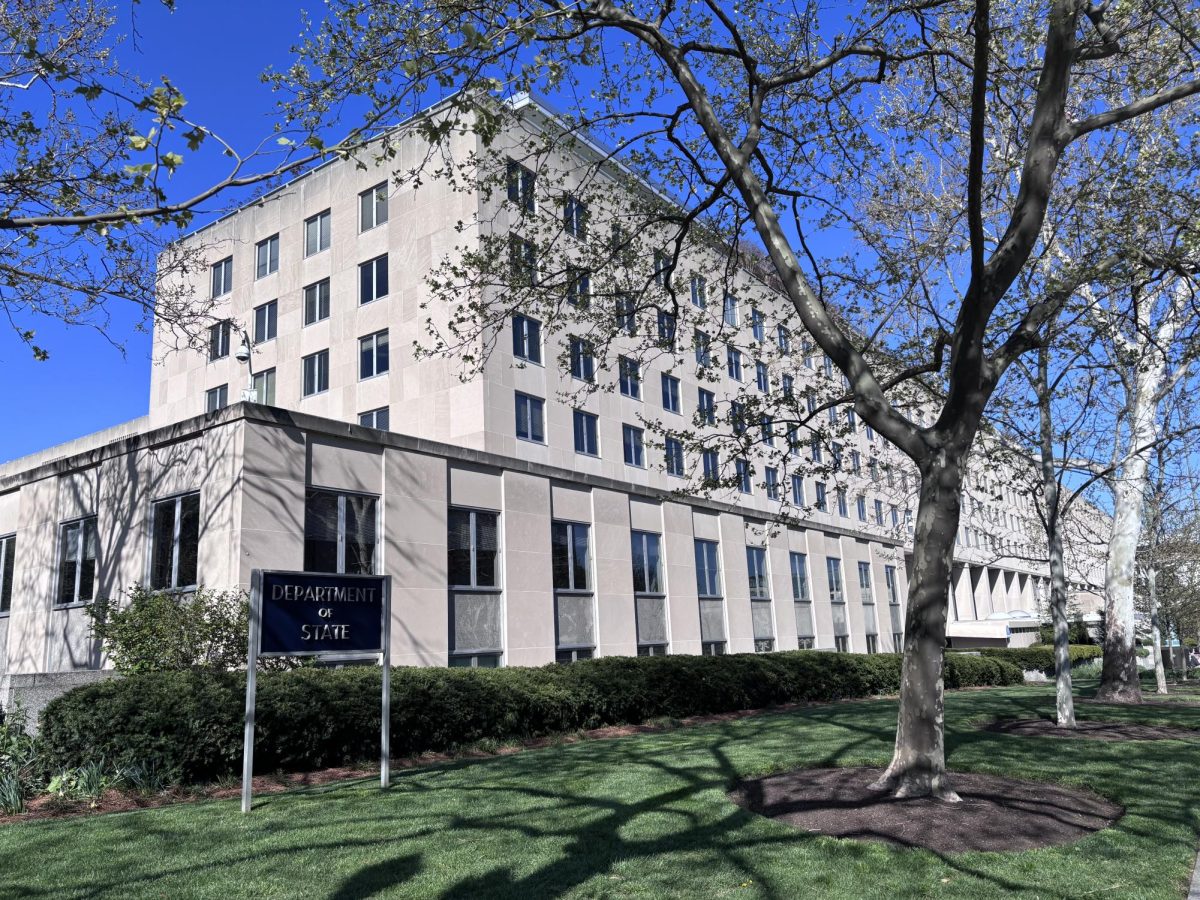On Monday, University of Alberta Associate Professor of Native Studies Kim TallBear spoke at Harper Memorial Library as part of an event organized by the Chicago Center for Contemporary Theory. Her lecture, “Settler Love Is Breaking My Heart,” explored the constructs and structures of “compulsory monogamy” as a tool for the colonization of indigenous peoples, and how “more than monogamous” relationships are a tool for decolonization and restitution of indigenous ways of life.
TallBear grew up on the Flandreau Santee Sioux reservation in South Dakota and in St. Paul, Minnesota, and is an enrolled member of the Sisseton Wahpeton Oyate in South Dakota, according to her biography on her website. She is also a Canada Research Chair in Indigenous Peoples, Technoscience, and Environment, a position awarded to her by the Canadian government, and writes a blog titled “The Critical Polyamorist.”
TallBear began her lecture by dedicating her talk to “the many humans suffering [from] profound loneliness within their monogamous relationships, or due to other deprivation stemming from a compulsory monogamy structure.”
The term compulsory monogamy refers to both social norms surrounding monogamy as well as the economic and logistical benefits of state-sanctioned marriage. TallBear’s lecture dove into the origins of these notions and their societal and historical consequences, especially for indigenous peoples whose relations before settler colonialism did not follow traditional monogamy.
TallBear uses the term “relations” to refer to both relationships between humans and the relationships humans have with the environment and animals, among other things.
“Historically, it has been straight white men, in general, [who are] at the helm of the religious, state, and scientific institutions. They largely assume that monogamy is a natural marker of civilizational and evolutionary advancement,” TallBear said.
TallBear and her contemporaries challenge these notions, of monogamy as a natural maker of civilizational advancement, by putting science in conversation with social theory. “Co-production, or co-constitution, are social construction theories that work to not underplay materiality’s role in our reality,” TallBear explained.
“The natural orders that science describes are co-produced with the culture or society that is doing the observing,” TallBear said.
Throughout her lecture, TallBear illustrated how oppressive treatment of indigenous peoples by the U.S. and Canadian governments forcibly reshaped the ways indigenous people relate to each other and “more than humans,” which TallBear describes as entities such as “land, water, and other than human relatives.”
Settler states and the construct of compulsory monogamy, TallBear said, “violently shape and suppress the sexual realities and relationships of indigenous life.”
TallBear asks “if decolonized relationship forms cannot be exactly what our ancestors relationships forms were, can they be other than predicted on settler-imposed compulsory monogamy and nuclear family forms?” TallBear emphasized that monogamous relationships are closely linked with private property and the imposition of settler laws.
“All of this was imposed to disrupt or steal indigenous relations,” TallBear added.
TallBear also spoke openly about her own experience with monogamy and family. “Being married, squeezing myself into the box of a normative marriage, is the hardest thing I have done,” TallBear said.
Despite ending her intimate relationship with her husband, TallBear remains legally married. “We have never legally divorced. I don’t care about the legalities. I don’t plan on marrying again. And we are both paperwork procrastinators,” TallBear joked.
However, the fact that she remains in a legal marriage paints a telling picture about the benefits of state-sanctioned marriage, she added.
“Perhaps we also stay legally married because, within the settler-colonial system, state-sanctioned marriage, whether secular or ceremonial, provides benefits that make it easier to sustain kinship networks,” TallBear said, adding that “this was of course the point of its imposition: to support some family forms and to undercut others.”
TallBear also referenced same-sex couples and their fight for marriage rights to explain why the right to legal marriage is so attractive. “Legal marriage facilitates health care privileges, next-of-kin rights, immigration [benefits], tax benefits, and child custody arrangements. These are reasons why same sex couples have pushed hard for state-sanctioned marriage,” TallBear said.
However, TallBear noted she would rather see these benefits “untethered” from the legalities of monogamy, rather than simply expanded to include a more diverse definition of marriage.
TallBear finished her lecture by telling the audience, “May your networks of love and relations be many, and not caged within settler-colonial norms of rapacious individualism, hierarchies of life, and ownership of land, water, bodies, and desires.”









